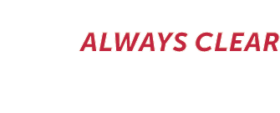Your septic tank, nestled beneath the ground, serves as the uncelebrated guardian of your home’s wastewater. It diligently collects all effluent generated within your abode. When its capacity is reached, a pipe atop the tank conveys the wastewater into a drainfield, discreetly situated within your yard.
However, if the conduit leading to this drainfield becomes obstructed, a cascade of issues ensues. The septic tank swells to its limits, eventually causing the wastewater to retrace its steps, invading your sanctuary. This is a calamity best avoided, for the ensuing havoc can be both extensive and financially burdensome. Thus, it is imperative to undertake an early assessment of a blocked septic line before it metamorphoses into a full-fledged disaster.
But first, a crucial distinction must be made – is it a clogged drain or a clogged septic line that plagues your household?
Distinguishing a Clogged Drain from a Clogged Septic Line
Frequently, instances of sluggish or obstructed drains can be resolved by clearing the indoor plumbing network. These issues primarily manifest within the drain-waste-vent system, a segment of your plumbing heavily utilized throughout the day. Foreign objects and the gradual accumulation of substances within the pipes can also precipitate these problems.
The first step in addressing such concerns is accurate diagnosis. The resolution differs significantly depending on whether the issue is confined to your home or extends to the broader septic system, which encompasses the tank, waste pipes, and the drainfield.
Here are key indicators of a septic line clog that mirror the symptoms of a clogged drain:
- Clogged Baffle: A septic tank typically incorporates both an inlet and outlet baffle. The inlet baffle permits wastewater entry, while the outlet counterpart thwarts the passage of solid matter into the drainfield. A clog affecting either baffle impedes the proper drainage of wastewater, potentially leading to reduced or obstructed drains. Unlike a typical drain blockage, however, chemical cleaners won’t suffice for this type of obstruction. Professional sewer technicians are requisite to rectify such issues.
- Pipe Impairment: It’s not solely the lines connecting to the drainfield that are susceptible to clogs; the pipeline extending from your dwelling to the septic system can also fall prey to issues. This is known as the main sewer line and is vulnerable to both blockages and external damage, such as intrusion by tree roots, pressure exerted by heavy equipment, and seismic events. If your residence boasts an older system, the plumbing lines are likely fashioned from clay – an exceedingly brittle material prone to damage.
- Drainfield Deterioration: Septic systems possess finite lifespans, with drainfields expected to endure for a few decades before necessitating relocation within your property. Consequently, an overabundance of solid waste obstructing the lines can render replacement essential. This not only precipitates a clogged septic line, but also compromises the soil’s drainage capacity. Drainfield failure can also stem from compaction, which occurs when the area is frequently traversed, parked upon, or covered with concrete or structures, leading to pipe compression and the expulsion of air from the drainfield.
Resolving a Clogged Septic Line
Upon identifying a clogged septic line, your next course of action must be carefully considered. While minor pipe obstructions may be alleviated with do-it-yourself solutions like the application of baking soda followed by white vinegar and hot water, more substantial clogs necessitate professional intervention.
Professional sewer drain technicians like us here at Always clear Sewer & Drain possess the expertise to employ safe and eco-friendly remedies for clearing obstructed lines, a process that not only saves time but also averts the prospect of costly repairs. Furthermore, they are equipped to address clogs before they engender pressure build-up in your pipes.
We utilize advanced tools such as sewer inspection cameras, which facilitate a comprehensive exploration of your pipes’ interiors. This not only aids in pinpointing the clog’s location but also unveils potential issues such as cracks and leaks, preempting extensive damage.
Preventing Clogs in Your Septic Lines
In addition to troubleshooting and remedying clogged septic lines, preventative measures can be adopted to forestall such blockages in the first place:
- Mindful Toilet Paper Usage: Only toilet paper should find its way into your toilet bowl. Paper towels, wet wipes, and feminine hygiene products escalate the risk of septic line blockages. Moreover, these items fail to disintegrate adequately within your septic tank, amassing at its base, often necessitating full system pump-outs.
- Proper Grease Disposal: Though disposing of grease down your sink drain may appear convenient, it invariably culminates in complications. As grease navigates your plumbing, it cools and congeals, adhering to pipe interiors and septic lines. This congealed residue ensnares other debris, culminating in obstructive clogs. Additionally, grease can accumulate within your septic tank, eventually migrating to the surface and infiltrating the drainfield, instigating costly blockages and damage.
Trust Professionals for Resolution
While the allure of DIY repairs to save time and money holds universal appeal, a judicious approach must be exercised concerning your septic system. The utilization of chemical drain cleaners to mitigate blockages can inadvertently eradicate the bacteria essential for waste decomposition within your septic tank. Consequently, your septic lines become susceptible to clogs.
By enlisting the services of professional sewer technicians, you not only ensure the preservation of these crucial bacteria but also secure a comprehensive resolution to septic line clogs. The utilization of safe and environmentally responsible solutions is the hallmark of their approach. Moreover, their intervention minimizes the likelihood of extensive pipe damage due to pressure build-ups.
In conclusion, for any in-home drain issues, entrust a professional sewer technician with the task of investigation and resolution. Our dedicated team at Always Clear Sewer and Drain remains accessible around the clock, prepared to address your plumbing requirements. With your well-being and environmental integrity in mind, we are poised to ensure the optimal functionality of your drainage system. Give us a call any time of the day or night at (888) 834-3655 for help!
